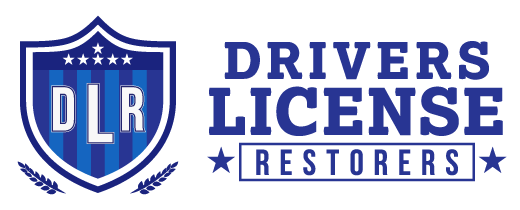Need to beat a Florida DUI charge? Rule #1: don’t try on your own.
As human beings, we all make mistakes. It’s a natural part of who we are and it’s something that often shapes who we become. A first time DUI arrest and charge is a mistake. Plain and simple. However, don’t compound your mistake by making multiple others. This is the perfect recipe to much larger, complicated problems for you.
If you find yourself facing a DUI charge, the first thing you should do is consult and hire an experienced DUI attorney. Do not attempt to represent yourself. Google will not teach you all the ins and outs of law, nor will it prepare you for the many things that can go wrong.
An attorney that specializes in DUI cases will know potential loopholes and have the experience to handle any situation that is thrown at them. Here’s a quick overview of Florida’s’ DUI laws and how you can potentially beat your DUI charge.
Florida’s DUI Laws
In Florida, a DUI (driving under the influence) or DWI (driving while intoxicated) charge typically applies when a driver is legally intoxicated, or has a BAC (blood alcohol content) of .08% or higher.
DUI charges can also be occur in cases where the driver has:
- A BAC of between .05% and .08% but is displaying signs of intoxication
- A BAC of less than .08% but is under 21 years of age
- Under the influence of drugs or other substances (prescribed or otherwise).
 Additionally, all 50 states adhere to a zero tolerance law for drivers under 21. This means that the BAC must not be above .02%). While many choose to refuse roadside sobriety tests and breathalyzers, it is important to note that, particularly in Florida, refusal to take a chemical test to determine BAC can be considered a misdemeanour.
Additionally, all 50 states adhere to a zero tolerance law for drivers under 21. This means that the BAC must not be above .02%). While many choose to refuse roadside sobriety tests and breathalyzers, it is important to note that, particularly in Florida, refusal to take a chemical test to determine BAC can be considered a misdemeanour.
This will likely result in an administrative license suspension of one year – even if you are not ultimately charged with a DUI. It is still your decision, but always be aware of the consequences.
Penalties for DUI can vary based on the following:
- level of intoxication
- the number and age of passengers in the car
- whether or not the offence resulted in damage to persons or property
- whether you have been charged before.
For a first offense, where the BAC is between .08% and .15%, there is no minimum jail time, but there is a maximum of 6 months, as well as a fine of up to $1000.
In addition, Florida law mandates that you will be placed on probation (this is combined with any time you serve, and the probation and jail time are not to exceed the six month period in total), and be required to serve a minimum of 50 hours of community service. Your license will likely be suspended for six months to a year, and your vehicle will likely be impounded for up to 10 days.
You have ten days from the time of the arrest to challenge the license suspension.
How to Beat A DUI Charge
- Hire a good lawyer
There are a number of ways to beat a DUI charge, although, it is important not to try do do it alone.
The first option for – and step towards – beating a DUI charge is to hire a good DUI Attorney.
- Be sure to research the lawyer’s client history and reviews
- Meet with the lawyer to ensure that you will be able to work with them
- Ensure they are determined enough to understand your case fully and to fight your charges to the best of their ability.
Your best chance at avoiding serious consequences is an excellent DUI defence.
- Look for mistakes
After you find the right lawyer, one of the first steps to take for beating a DUI charge is to look for any mistakes that may have been made during your arrest. Police must have reason to suspect that a violation of traffic laws is occurring in order to pull you over.
Although, stationary sobriety checks are permissible (e.g. a blockade to check all drivers for intoxication) provided they are in accordance with state regulations. Police must also be witness to a violation. Witness reports are not sufficient for a charge.
In addition, if you believe yourself to be the victim of profiling, this may help your case. Arrests must be made at the time of the incident – DWI charges have a very short statute of limitations.
- Find out if your test results were valid
There are specific procedures and timelines for administering BAC tests.
These include, but are not limited to:
- multiple testings to ensure accuracy
- verifying that any equipment used is working properly
- making sure that the observation period is upheld prior to testing.
Knowing the details of your testing can help your lawyer to determine whether the results can be deemed inaccurate or inadmissible.
- Extenuating circumstances.
In some cases, the circumstances of your intoxication, or apparent intoxication, may be out of your control. This may be the case if you are pulled over for weaving or other erratic driving during inclement weather.
Also, if you believe that a substance was administered to you without your knowledge or consent. For example, something was slipped in your drink. Extenuating circumstances can also assist in lowering the likelihood of a conviction.
Your attorney may be able to arrange for you to continue driving, with restrictions, if this is a first offense and you need your vehicle to maintain employment.
- “Wet reckless”
In a Florida DWI case, it is sometimes possible to plead down to a charge called a “wet reckless”.
This is a reckless driving charge that requires you to go through a substance abuse education program and evaluation, but carries fewer penalties with it than a DUI. If you are determined to have an alcohol or drug abuse problem, however, this charge may result in admission to a rehabilitation program.
The wet reckless charge exists in very few states, but still holds in Florida if circumstances allow. So you definitely want to be mindful of this.
- Your right to a fair and speedy trial
If there are unreasonable delays in your trial by the prosecution or the court itself, your charges may be dropped. Misdemeanour charges must be tried within 90 days, felonies within 175.
The justice system has these rules in place to protect you from a prolonged period of stress during which you are unsure of the eventual outcome.
- Errors during trial
Certain protocol must be followed during the trial itself, including disclosure of evidence and experts, as well as consistent witness statements (including those from police). If the prosecution falls apart in its argument, this may result in dismissal of charges as well.
Having an experienced DUI attorney on your side, can be extremely beneficial as they’re trained to spot errors and take advantage of them.
So How Do You Find Help?
If you find yourself in need of an attorney to handle your case, Drivers License Restorers is an excellent resource. We offer a list of DWI defense attorneys by state, as well as information on how to choose the right lawyer for you.
Drivers License Restorers also offer a wealth of information on program resources if you are convicted, from DUI classes to treatment centers, and everything in between to help you get your life and freedom back.
Finally, it is important to remember why these laws exist.
Between the years of 2003 and 2012, 8,476 people were killed as a result of impaired driving in Florida alone. The vast majority of whom, were between the ages of 21 and 34.
2.1% of adults surveyed reported having driven after drinking too much, within the last 30 days. This is higher than the national average of 1.9%.
Mistakes happen, but these mistakes can be very costly to you and others, and the consequences are typically much more severe if the mistakes are repeated.

